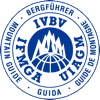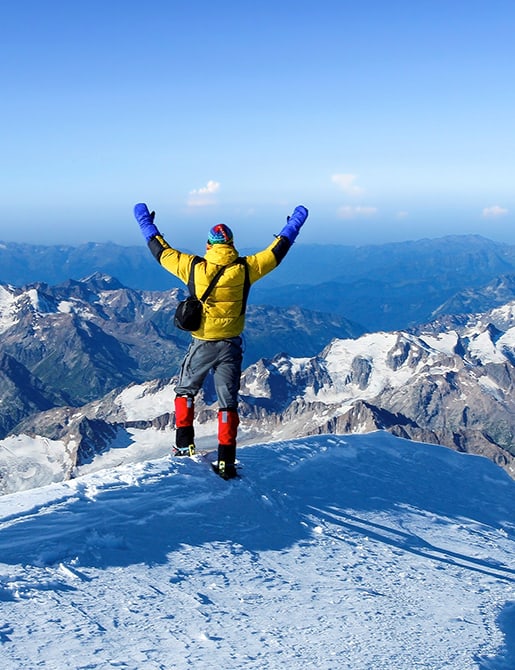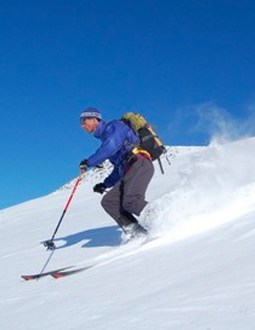Youth Rock Climbing Camps are open for booking!


Have you been longing to take your skiing and riding skills into the backcountry but don’t know where to start? The goal of our three day course is to give people a foundation in the use of the gear and the skills to plan and execute a simple tour.
We also offer this ski touring course at Crystal Mountain.
This 3-Day Ski Touring course is an excellent way to gain the skills you need to become a proficient backcountry skier or splitboarder. If you are skilled at skiing or snowboarding off-piste in ski resorts and have been longing to get out of bounds, this course is for you! Please note that this course is for proficient downhill skiers/riders who can ski/ride proficiently off-piste, and safely get down black diamond runs in any conditions.
Our 3-Day Ski Touring course and our AIARE 1 avalanche course will teach you equally important yet very different skill sets. This ski touring course is a movement-based course designed to introduce you to the gear, skills, and knowledge necessary to move proficiently through the backcountry. Our avalanche courses are designed to teach you to identify avalanche hazards and manage risk in the backcountry. In order to become a well-rounded backcountry traveler, we encourage you to take both the ski touring course and an AIARE 1 course. If you take the 3-Day Ski Touring Course and an AIARE 1 Avalanche Course in the same season, you will receive a 10% discount on each.
Note the course is 3 consecutive days, but only the first day will appear after clicking the red "View Dates & Availability" button.
Overall Difficulty Level: ◾◾◽◽◽
Skiing Skills Required:◾◾◽◽◽ (31 to 38 Degrees)
The minimum requirement for all ski touring courses is a strong upper intermediate skiing or snowboarding ability in all types of terrain and conditions. The backcountry terrain on Snoqualmie Pass is challenging for splitboarders and the skill level has to be a bit higher still than for skiers. This means you are comfortable in ungroomed conditions in all types of snow (heavy, wet snow, powder, ice, breakable crust, etc). You should be able to make controlled turns in difficult, steep and tight terrain with any of the above mentioned snow conditions. It doesn't have to be pretty, but it should not cause stress. Again, this is not for the new or novice downhill skier or snowboarder; you should feel pretty dialed to ride anything downhill.
Fitness Level: ◾◾◾◽◽ (2500 to 3500 feet of vertical gain; 12 kilometers of distance) We'll keep individual day moderate but this is a three day course with the consecutive days taking their toll.
Technical Skills: ◾◽◽◽◽ (You show up with the appropriate gear and we'll teach you how to use it.)
Sounds too Difficult? Check out our 1-Day Touring Course.
Sounds too Easy? Check out our Advnaced Touring Course.
Sample Itinerary. Be aware that the order may change based on snow and weather conditions.
Day 1: We will execute a simple ski tour with the emphasis on learning how to use new gear.
Day 2: A second ski tour with:
Day 3: For parts of our final tour the guides will move from instructors to facilitators with the students carrying us through some of the skills we've learned so far.
Snow Travel Gear
Safety Gear
You should be a strong, upper intermediate skier. Snow conditions may vary, ski touring equipment feels different than standard alpine gear, backcountry terrain is often more challenging, and the course is physically demanding.
The course is movement based. Ski touring principles are explained on the go and practical application is instant.
Well, ideally you take both an AIARE 1 course AND a 3-Day Ski Touring Course. The designs of these two courses are very complementary and that is why we offer a 10% discount to anyone who decides to sign-up for both of them within the same season. If possible, we recommend taking the touring course before the AIARE course. Please send us an email (info@proguiding.com) if you sign up for both courses so that we can apply the 10% discount to both.
Although tipping is not a requirement, it is considered standard practice in the guiding industry and is appreciated by our guides. We generally recommend roughly 10%-15% of your course or a trip cost or a flat amount that you are comfortable with.

